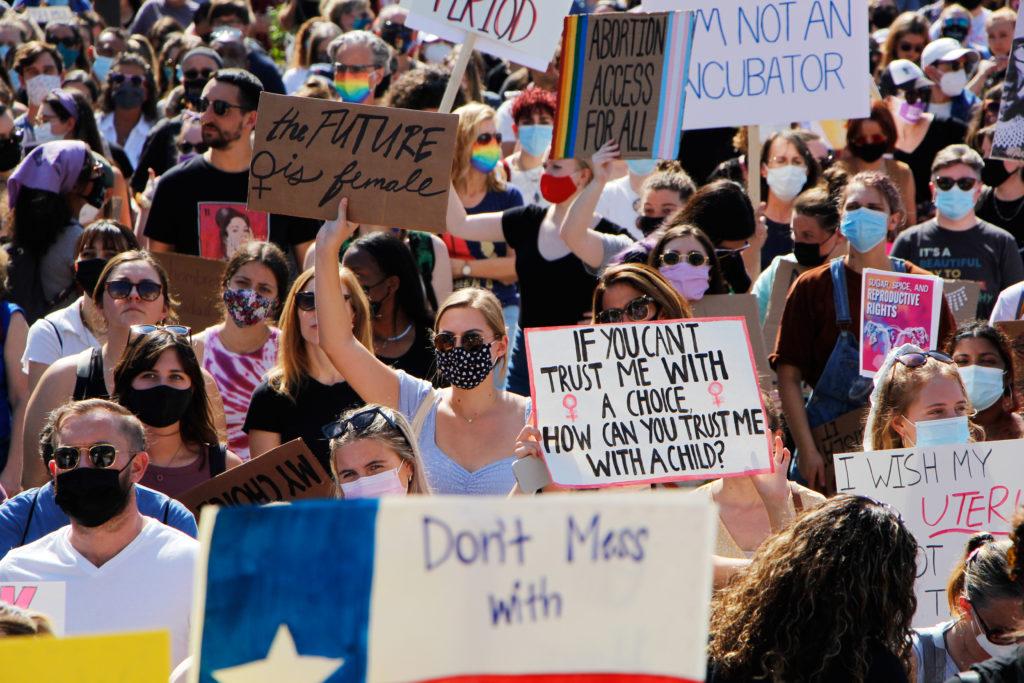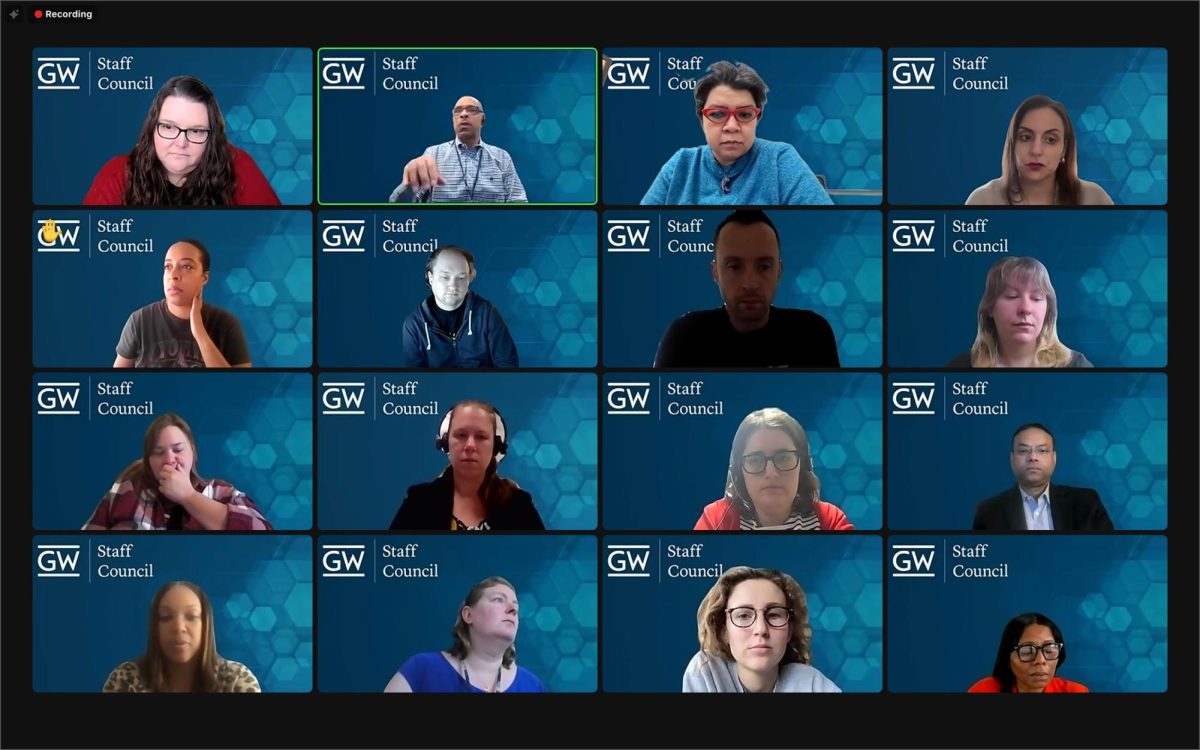Thousands of protesters marched from Freedom Plaza to the Supreme Court Saturday to demand protections of abortion rights and the landmark Roe v. Wade decision.
More than 5,000 protesters gathered during the Women’s March Rally for Abortion Justice Saturday, one of more than 600 marches throughout the United States opposing restrictive abortion laws in states like Texas and Mississippi. The Supreme Court refused to block a Texas law that bans abortions after six weeks in early September, and justices will hear a case about Mississippi’s 15-week abortion ban Dec. 1.
Protesters gathered at Freedom Plaza at noon, where they listened to speeches from abortion rights activists for nearly two hours before marching to the Supreme Court.
Alexis McGill Johnson, the president of Planned Parenthood, said the abortion laws in Texas, Mississippi and other states have gone too far in limiting abortion access. She said state legislators have introduced nearly 600 laws in 47 states that restrict access to abortion, which she called an attack on a woman’s dignity and humanity.
“For too many people, abortion is already out of reach,” she said during a speech at the protest. “As our reproductive justice partners remind us, a right without access is meaningless.”
Jo Ann Appold, a demonstrator from Maryland, said she wanted to protect the right to abortion for future generations, especially as a mother of three children. Appold said she is glad to be able to financially support her children through daycare services, but other people may not be able to do the same.
“I could not take care of all of them and work,” she said. “It just wasn’t going to work. Daycare has been outside people’s ability to pay for years, even when you’re wealthy.”
Evan Clouren, a transgender and nonbinary protester from Baltimore, said they wanted to protest to show people that abortion rights issues don’t just affect women, but also transgender men and many other people who can become pregnant.
“I can still get pregnant, and I may need an abortion,” Clouren said. “So it’s more than just a women’s rights issue. It’s a trans rights issue. It’s an LGBT rights issue. It’s a human rights issue.”
Clouren wore a bright green Equal Rights Amendment pin in support of the proposed amendment that would guarantee equal legal rights for all genders under the Constitution.
“I believe in everybody’s freedom of health care, freedom to bodily autonomy,” they said. “And I believe in everybody’s human rights and the basic rights to live a happy life.”






